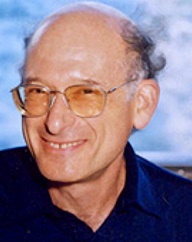
Daniel B. Wile
Assistant Clinical Professor of Psychology
Daniel B. Wile, Assistant Clinical Professor in the UC Berkeley Clinical Science Program, 2003-19, died in his Oakland, California home on March 18, after a long struggle with heart failure. With a B.A. from University of Chicago in 1960, and Ph.D. from the UC Berkeley in 1966, Dan went on to a distinguished career as a therapist, author, and teacher. He made memorable contributions to students in Berkeley’s Clinical Psychology program by co-teaching the primary couples therapy graduate course for three years, and participating for many years in the supervision of graduate students as they learned to do couples therapy.
Dan’s central contribution to the students, to his faculty colleagues, and to the field of couples therapy, was as a theorist, with an original approach to helping both couples and therapists recognize and deal directly with their vulnerabilities. He became known nationally and internationally as the founder and developer of Collaborative Couple Therapy. He developed a signature method he called doubling, talking for each partner in the couple as if he were that person, reframing their attack or withdrawal with words of acknowledgement and vulnerable feelings, always checking in with partners to give them the last word. His theory and practice encouraged clients to have their say about every aspect of their therapy, empowering partners and giving the therapist the benefit of each partner’s input.
Dan’s impact on the field of couples therapy in America stems in large part from three books: Couples therapy: A nontraditional approach (1981); After the fight: using your disagreements to build a stronger relationship (1993); and After the honeymoon: how conflict can improve your relationship (revised 2008). Dan also described his approach in chapters published in the Clinical handbook of couple therapy (3rd edition, 2002), in numerous articles, and in a blog he maintained for couples therapists over the last few years. Throughout his professional life, Dan was committed to sharing his knowledge and experience. He rarely missed a morning’s writing session, revising each paragraph until it shone with clear and vivid prose.
At the time of his death, Dan had completed an advanced draft of what he saw as his most significant written legacy, “Solving the moment: a collaborative couple therapy manual,” which distilled and integrated the main principles that he evolved over his career as a therapist and teacher. The book helps therapists with specific interventions, offers the thinking behind them, and provides numerous engaging dialogues as examples. “Solving the moment” puts the focus on the therapeutic task of turning the couple’s fight or withdrawal into an intimate conversation, the primary goal of Collaborative Couple Therapy. John Gottman, a leader in the field of couples therapy, has said: “I really learned a lot from Dan’s thinking. He was just an amazing clinician, with unique insights. He went far beyond what I created therapeutically.” In accordance with Dan’s wishes, Dorothy Kaufmann, his wife and colleague, has prepared a final version of “Solving the moment” for publication.
Dan gave training workshops in the U.S. and internationally over several decades, a seminal influence on many generations of clinicians. With Dorothy Kaufmann, he also gave workshops for couples all over the country. They modeled a relationship of equality within the couple. Mona Fishbane, a nationally known couples therapist and author, has written about Dan and his work: “He saw the good and the vulnerable lurking behind the difficult and the self-protective behaviors we use to defend ourselves. In his amazingly gentle and humble way, he would bring out these other voices, like releasing doves into the air.”
In his writings and his teaching, Dan shared his own self-doubts in working with couples who sought out therapy but resisted change. That humility was at the heart of his theory, his practice, and his sensibility. His desire to protect clients from “the weight of my authority” also extended to students and therapists who trained with him. Dan’s collaborative dynamic strengthened their trust and, paradoxically, his authority. He taught them that even experienced therapists have feelings of self-doubt and that those vulnerable feelings can be helpful in the therapist’s task of helping couples. If even Dan, whom they so admired, could feel that way after years of practicing, they were not alone. They, too, were entitled to feelings of confusion and uncertainty. As a person, a partner, a colleague, and a friend, Dan was a mensch, radiating a quality of goodness that could be felt by everyone in his presence. He wore his kindness and calm temperament lightly, with wry humor.
Dan Wile is survived by Dorothy Kaufmann, whom he met in 2007, her son Steven McCall, Dan’s sister and brother-in-law, Eleanor and Stephen Bulova, their children, Peter Bulova and Susan O’Donnell, and his former wife, Joanne Wile.
Carolyn Pape Cowan
Philip A. Cowan
Dorothy Kaufmann
2021
